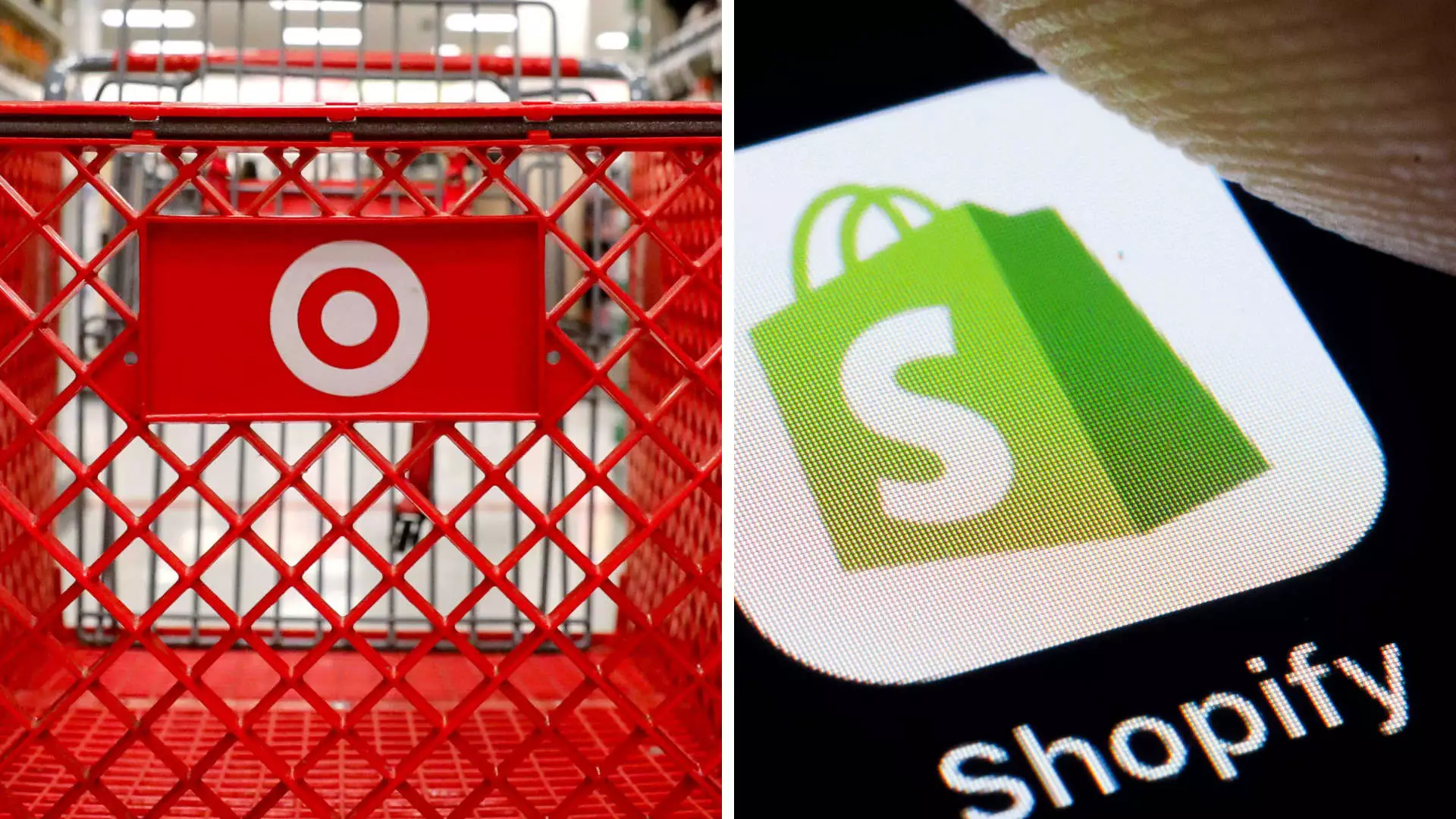Target has announced that it will be partnering with Shopify to introduce new and trendy brands to its e-commerce platform. The collaboration, known as Target Plus, will allow Shopify merchants to apply to join Target’s marketplace, thereby expanding the selection of products available on the retailer’s website. Target’s Chief Guest Experience Officer, Cara Sylvester, stated in an interview with CNBC that the partnership with Shopify will enable Target to discover popular items quickly and make them available to online shoppers. Additionally, Target plans to leverage this new alliance by featuring some of the sought-after items in its physical stores.
While the move to join forces with Shopify seems promising, Target has been facing sales challenges as consumers are shifting their spending away from discretionary items. The company has experienced a decline in comparable sales over the past four quarters, with its e-commerce business also struggling to gain traction. Despite modest growth in digital sales in the first quarter, Target has yet to achieve substantial gains in its online operations. As a result, the retailer has set modest expectations for the full year, anticipating flat to 2% growth in comparable sales and adjusted earnings per share in the range of $8.60 to $9.60.
Target’s stock performance has lagged behind the broader market, with only a 2% increase compared to the S&P 500’s nearly 15% rise. The company’s shares are trading well below the highs seen during the Covid pandemic, further highlighting the need for strategic initiatives to drive growth. Similarly, Shopify has seen a decline in its stock price this year, underscoring the challenges facing e-commerce platforms in the current market environment.
Target Plus, while growing rapidly, still represents a small fraction of revenue compared to other major third-party marketplaces like Amazon and Walmart. Target’s invite-only platform boasts over 1,200 sellers, offering a curated selection of products ranging from beauty to home goods. The marketplace has been successful in showcasing viral products like the UnBrush and premium brands such as Ray-Ban and Coach. The addition of Shopify merchants is expected to further enhance the assortment available to Target shoppers.
Third-party marketplaces are gaining popularity among retailers due to their ability to drive higher profits without the need to own inventory. Unlike traditional retail models, these platforms utilize sellers to store, pack, and ship products, thereby reducing the financial risks for retailers. Target’s decision not to offer fulfillment services sets it apart from competitors like Walmart, which has been strategically expanding its marketplace efforts to compete with Amazon. Walmart’s marketplace has seen significant growth, attracting a diverse range of sellers and offering new services to meet consumer demands.
As e-commerce continues to evolve, retailers like Target are exploring innovative partnerships to stay competitive in the market. The collaboration with Shopify reflects Target’s commitment to enhancing its online presence and engaging with new brands to attract customers. While the challenges of the retail landscape persist, the ongoing investments in technology and digital capabilities will be key to driving growth and maintaining relevance in the ever-changing consumer landscape.


Leave a Reply